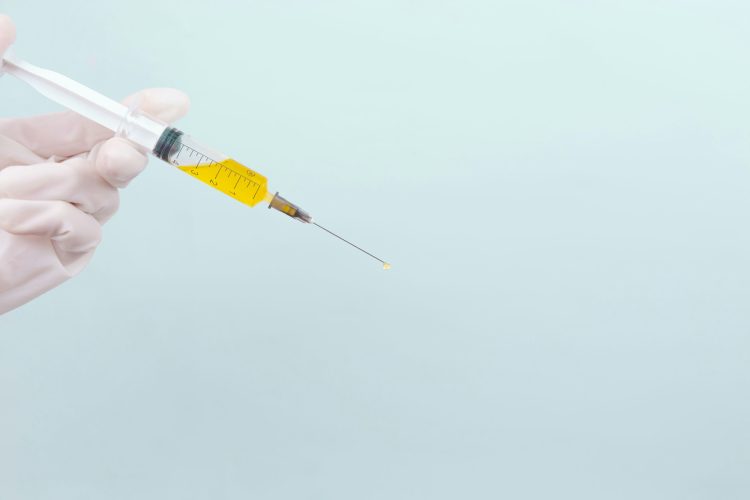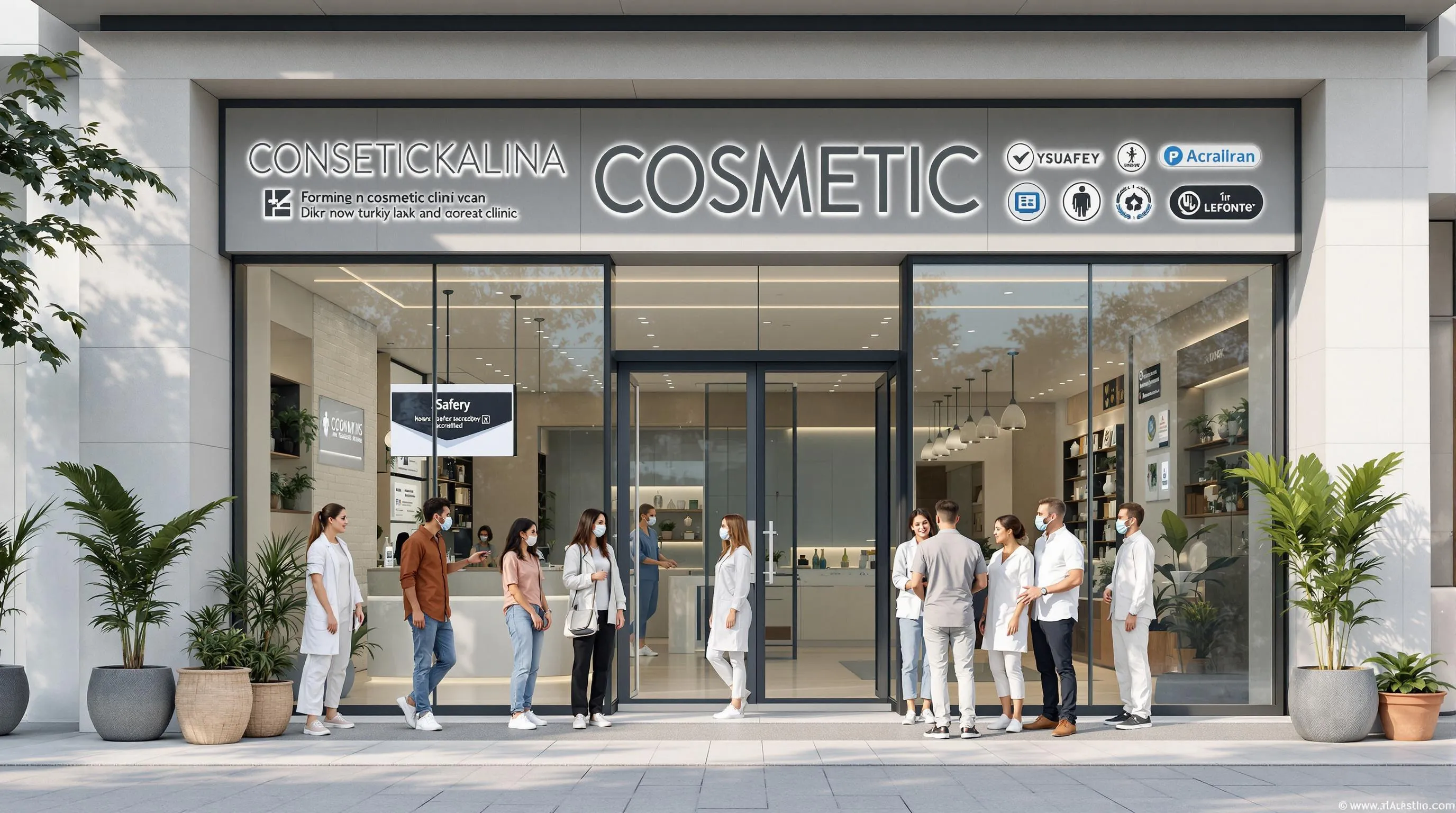The UK’s crackdown on Brazilian butt lift advertising has sent shockwaves through the cosmetic surgery industry, raising critical questions about healthcare brand credibility and patient safety. The Advertising Standards Authority recently banned six companies from promoting liquid BBL procedures, citing exploitation of women’s insecurities and dangerous pressure tactics that trivialized serious medical risks.
Quick SummaryThe UK's crackdown on Brazilian butt lift advertising by the Advertising Standards Authority has sparked urgent discussions regarding patient safety and the integrity of cosmetic surgery marketing. This ban on misleading promotions targeting women’s insecurities coincides with alarming reports of severe health complications, including fatalities linked to unregulated procedures, particularly abroad. As a consequence, healthcare brands must prioritize genuine patient education over aggressive marketing tactics, marking a significant shift toward enhanced regulatory practices and consumer protection.
This regulatory action comes at a time when hundreds of British women have suffered severe complications from unregulated BBL procedures, with many requiring emergency hospital treatment for sepsis and corrective surgery. The controversy extends beyond domestic borders, as at least 20 Britons have died after seeking BBL procedures in Turkey since 2019, highlighting the global nature of medical tourism risks.
The advertising ban represents more than regulatory enforcement—it’s a pivotal moment that challenges how healthcare brands communicate with vulnerable consumers and whether current oversight mechanisms adequately protect patients from potentially life-threatening procedures marketed through social media platforms.
Table of Contents
Understanding the UK Brazilian Butt Lift Ban
The Advertising Standards Authority’s decisive action against liquid Brazilian butt lift advertising represents a watershed moment for cosmetic procedure regulation in Britain. This comprehensive crackdown targeted specific marketing practices that exploited vulnerable consumers and trivialized serious medical risks associated with unregulated aesthetic treatments.
What Led to the Regulatory Action
The regulatory intervention emerged from mounting evidence of dangerous advertising practices across social media platforms. The ASA’s artificial intelligence-driven monitoring system detected numerous Facebook and Instagram advertisements that violated fundamental principles of responsible healthcare marketing. These promotional campaigns consistently exploited women’s body image insecurities while minimizing the substantial health risks associated with liquid BBL procedures.
Hundreds of British women contracted serious infections after undergoing liquid BBL treatments in the UK, with many requiring emergency hospital treatment for sepsis or corrective surgery to repair tissue damage. The unregulated nature of these procedures in Britain created a dangerous environment where practitioners operated without proper oversight or safety protocols.
The immediate catalyst for regulatory action came from specific advertising tactics that created artificial urgency around cosmetic procedures. Companies promoted “exclusive opportunities” to achieve a “perfect peachy look“ through time-limited Black Friday deals and similar discount offers. One particularly egregious advertisement pressured customers with language suggesting immediate action was necessary to secure cosmetic enhancement.
Six UK companies faced censorship for their marketing approaches, which included exploiting body image concerns and trivializing medical risks. The ASA identified that these advertisements portrayed cosmetic surgery as an impulse purchase rather than a serious medical decision requiring careful consideration and professional consultation.
The regulatory body emphasized that cosmetic procedures must be presented as decisions requiring time and thoughtful evaluation, not urgent bookings to secure promotional deals. This stance reflects growing concerns about the commodification of surgical procedures through social media marketing tactics that mirror retail advertising strategies.
Scope and Implementation of the Ban
The UK cosmetic surgery laws enforcement extends beyond simple advertisement removal to comprehensive reform of aesthetic treatment marketing. The six companies involved received explicit instructions that their current advertising formats could no longer appear on any platform, establishing clear precedent for future enforcement actions.
The Brazilian Butt Lift UK ban specifically targets liquid BBL procedures, which involve injecting dermal fillers into buttock tissue to enhance volume and shape. Unlike traditional BBL surgeries that relocate patient fat through surgical procedures, liquid variants use injectable substances that carry distinct risks including blood clots, sepsis, and tissue necrosis.
Implementation focuses on social media platforms where these advertisements predominantly appeared. Facebook and Instagram campaigns that featured time-limited discounts, before-and-after imagery designed to exploit insecurities, or language minimizing medical risks now face immediate removal and potential legal consequences for providers.
The liquid BBL crackdown UK extends to enforcement mechanisms beyond advertising restrictions. Glasgow City Council’s Environmental Health Officers issued Prohibition Notices preventing specific companies from performing high-risk procedures within city boundaries. These notices require providers to demonstrate safe operational procedures before resuming any cosmetic treatments.
Enforcement includes financial penalties and sanctions administered through the Care Quality Commission for providers who continue operating outside regulatory guidelines. The scope encompasses not just advertising practices but operational standards, practitioner qualifications, and facility requirements for unsafe cosmetic procedures UK.
The beauty industry regulations UK framework now requires cosmetic clinic licensing UK for facilities offering injectable treatments. This represents a fundamental shift from the previous unregulated environment where practitioners could operate without specific qualifications or oversight mechanisms.
Future legislation will restrict high-risk aesthetic treatments to qualified healthcare professionals exclusively. This comprehensive approach addresses both marketing practices and operational standards to create a safer environment for consumers considering cosmetic procedures. The medical aesthetics legislation UK creates clear boundaries between legitimate healthcare services and unregulated commercial operations that previously operated without sufficient safety protocols.
Safety Concerns and Medical Risks

BBL procedures carry the highest mortality rate among all cosmetic surgeries, with documented fatality rates reaching 1 in 3,000 cases according to recent medical studies. The UK’s regulatory crackdown addresses mounting evidence of severe complications from both surgical and non-surgical BBL variants.
Documented Health Complications
Brazilian Butt Lift procedures present a spectrum of life-threatening complications that have prompted urgent regulatory intervention across the UK. Pulmonary embolism represents the most severe risk, occurring when fat injected into buttock muscles enters the bloodstream and travels to the lungs, creating potentially fatal blockages. Medical records from UK hospitals show hundreds of women requiring emergency treatment for sepsis following liquid BBL procedures performed in unregulated clinics.
Deep vein thrombosis affects BBL patients at rates significantly higher than other cosmetic procedures, with clots forming in leg veins and potentially migrating to vital organs. Tissue necrosis presents another documented complication, where injected materials cause cell death and require extensive surgical reconstruction. The UK’s National Health Service reports treating an increasing number of BBL-related infections, including cellulitis that spreads rapidly through soft tissue.
Glasgow City Council’s 2025 investigation revealed a business performing BBL procedures in hotel rooms without proper sterile equipment or emergency protocols. The woman treated in this facility required immediate hospitalization due to severe complications, highlighting the dangers of unregulated practice environments. Gedling Borough Council’s prohibition notice against another BBL provider cited lack of trained staff and inadequate facilities for managing post-procedure emergencies.
Liquid BBL complications extend beyond immediate surgical risks to include long-term aesthetic damage. Filler migration creates lumpy, uneven contours that often require corrective surgery to address. Some patients develop granulomas, inflammatory nodules that form around foreign materials injected into tissue. These complications frequently manifest weeks or months after initial procedures, creating ongoing medical expenses and psychological distress for affected patients.
Expert Medical Opinions
The American Board of Cosmetic Surgery acknowledges that qualified surgeons can perform BBL procedures safely, but emphasizes the complex nature of the surgery and its inherent risks. UK medical professionals increasingly advocate for stricter regulation following documented cases of unqualified practitioners performing high-risk procedures without proper training or emergency protocols.
The British Association of Aesthetic Plastic Surgeons has advised its members to avoid performing traditional BBL surgery due to safety concerns, particularly the risk of fat embolism when injecting into gluteal muscles. This professional guidance has led to development of modified “lite” BBL techniques that restrict fat injection to subcutaneous tissue layers, avoiding deeper muscle penetration that creates embolism risk.
Professor Sir Stephen Powis, NHS National Medical Director, highlighted the burden that botched BBL procedures place on UK emergency services. NHS hospitals treat complications from unregulated procedures performed both domestically and abroad, with many patients requiring intensive care for life-threatening infections or blood clots. Medical tourism to countries with less stringent safety standards has contributed to this problem, with at least 20 British citizens dying after BBL procedures in Turkey since 2019.
Dr. Pacifico and other UK plastic surgeons express concern about patients seeking BBL procedures from practitioners not registered with the General Medical Council’s Specialist Register. These unregulated providers often lack proper training in managing surgical complications or emergency situations. The absence of standardized safety protocols in non-medical settings creates significant risk for patients who may not receive appropriate pre-operative screening or post-operative care.
Medical experts emphasize that legitimate BBL procedures require comprehensive patient evaluation, including cardiovascular assessment and blood clotting studies. Unregulated providers frequently skip these essential safety measures to reduce costs and speed up procedures. The UK government’s planned regulations requiring recognized training and regular inspections for invasive beauty treatments address these gaps in patient safety oversight.
Qualified medical professionals stress that cosmetic surgery decisions require careful consideration and informed consent discussions about potential complications. The ASA’s ban on time-limited BBL offers reflects medical consensus that patients need adequate time to research providers, understand risks, and make informed decisions about elective procedures. This approach contrasts sharply with the pressure tactics used by unregulated clinics to encourage impulsive booking decisions.
Impact on Healthcare Brand Trust

The UK’s comprehensive crackdown on Brazilian butt lift operators has fundamentally reshaped how consumers perceive healthcare brands within the cosmetic surgery sector. Regulatory authorities including Trafford Council and Gedling Borough Council have implemented strict bans on BBL operators working outside regulated medical settings, directly responding to documented cases of severe complications including sepsis, pulmonary embolism, and tissue death.
Consumer Confidence in Cosmetic Surgery
Consumer trust in cosmetic procedures has experienced significant erosion following widespread reports of BBL-related complications across the UK. A 2020 survey conducted among UK surgeons by the British Association of Aesthetic Plastic Surgeons (BAAPS) revealed that most medical professionals actively advise against BBL surgery due to documented safety concerns. This professional consensus has permeated public awareness, creating heightened skepticism among potential patients.
Hundreds of women have required emergency hospital treatment for sepsis and corrective surgery to repair tissue damage following liquid BBL procedures performed by unqualified practitioners. These documented cases have fundamentally altered consumer behavior, with patients now conducting more extensive research before committing to cosmetic treatments. The shift represents a departure from impulse-driven decisions previously encouraged by aggressive marketing tactics.
Medical tourism complications have particularly damaged consumer confidence, with numerous British women experiencing severe health consequences after traveling abroad for BBL procedures. These incidents have created ripple effects throughout the domestic cosmetic surgery market, as consumers become increasingly cautious about choosing providers based solely on cost considerations rather than medical credentials and safety protocols.
The advertising ban implemented by the Advertising Standards Authority has eliminated time-limited promotional offers that previously pressured consumers into hasty decisions. This regulatory intervention has forced the industry to adopt more transparent communication practices, emphasizing patient education over sales conversion tactics. Consumer advocacy groups report increased inquiries about provider qualifications and safety protocols, indicating a more informed patient base.
Healthcare brands operating within regulated frameworks have experienced positive differentiation as consumers actively seek licensed practitioners with proper medical credentials. The clear distinction between qualified medical professionals and unregulated operators has strengthened trust in established healthcare providers while undermining confidence in non-medical aesthetic clinics.
Regulatory Oversight and Industry Standards
The UK government’s commitment to introducing stricter regulations for cosmetic procedures marks a significant departure from the previously fragmented oversight structure. Current BBL procedures lack uniform licensing comparable to other beauty treatments such as tattooing or massage therapy, creating regulatory gaps that unqualified operators have exploited. The British Beauty Council and medical professional bodies emphasize that only medically qualified practitioners should perform these invasive procedures.
Local councils have exercised public health authority to ban unsafe practitioners, demonstrating active regulatory engagement at the municipal level. Glasgow City Council’s Environmental Health Officers have issued Health and Safety Prohibition Notices preventing specific companies from performing BBL and breast augmentation procedures within city boundaries. These localized interventions complement national regulatory efforts and create comprehensive geographic coverage of safety enforcement.
The forthcoming regulatory framework requires recognized training standards and mandatory inspections for businesses offering invasive cosmetic treatments. This standardization addresses the current disparity in qualifications among practitioners, establishing minimum competency requirements that align with patient safety expectations. Healthcare brands must now demonstrate compliance with enhanced training protocols and facility safety standards.
Professional medical associations have strengthened their advocacy for qualified practitioner requirements, creating industry pressure for self-regulation alongside government oversight. The collaborative approach between regulatory bodies and medical professionals has established clearer boundaries regarding acceptable practice standards and facility requirements.
Enforcement mechanisms now include the power to prohibit operations until safety evidence is provided, creating immediate consequences for non-compliance. This proactive approach contrasts with previous reactive responses to safety incidents, establishing prevention-focused regulatory intervention. Healthcare brands that demonstrate early compliance with enhanced standards gain advantageous positioning as the industry undergoes regulatory transformation.
The integration of artificial intelligence monitoring systems by the Advertising Standards Authority represents technological advancement in regulatory oversight. These AI-driven systems proactively identify problematic advertisements across social media platforms, enabling rapid intervention before harmful marketing practices influence vulnerable consumers. The technological approach enhances regulatory reach and creates consistent enforcement across digital marketing channels.
Advertising Standards and Consumer Protection

The Advertising Standards Authority’s intervention in the cosmetic surgery sector has established new benchmarks for consumer protection within the UK’s beauty industry. These measures directly address the systematic exploitation of consumer vulnerabilities through deceptive marketing practices.
Misleading Marketing Practices
The ASA identified six distinct patterns of manipulative advertising that dominated liquid BBL promotions across social media platforms. These practices deliberately targeted women’s body image insecurities while downplaying serious medical risks associated with unregulated cosmetic procedures.
Time-limited promotional campaigns created artificial urgency around medical decisions that require careful consideration. Advertisements featured phrases like “limited space available“ and “exclusive opportunity” to pressure potential patients into booking procedures without adequate research or consultation time. The ASA’s investigation revealed that these tactics violated fundamental principles of responsible medical advertising.
Social media platforms became primary channels for these deceptive campaigns, with Facebook and Instagram advertisements reaching thousands of vulnerable consumers daily. The promotional content exploited specific body image concerns through targeted messaging about “hip dips” and promises of “perfect peachy” results. These advertisements presented complex medical procedures as simple cosmetic enhancements comparable to routine beauty treatments.
The marketing materials consistently failed to disclose significant health risks associated with liquid BBL procedures. Companies advertised these treatments as “safe and effective“ while omitting information about potential complications including pulmonary embolism, sepsis, and tissue necrosis. This deliberate omission of risk information violated ASA guidelines for medical advertising transparency.
Before-and-after imagery in these advertisements often misrepresented realistic outcomes while glamorizing potentially dangerous procedures. The promotional content featured dramatic transformations without acknowledging individual variation in results or the possibility of adverse effects. Many advertisements also failed to specify that results shown might have been achieved through multiple procedures or additional treatments not mentioned in the promotional materials.
The ASA’s artificial intelligence monitoring system detected patterns of non-compliance across multiple providers, indicating systematic industry-wide problems rather than isolated incidents. Three of the six companies cited for violations failed to respond to ASA inquiries, demonstrating a broader culture of regulatory non-compliance within the unregulated cosmetic surgery sector.
New Guidelines for Cosmetic Procedure Advertising
The ASA has implemented comprehensive advertising standards specifically targeting high-risk cosmetic procedures following the liquid BBL investigation. These guidelines establish clear requirements for medical procedure marketing that prioritize patient safety over commercial interests.
Medical procedure advertisements must now present cosmetic surgery as serious healthcare decisions requiring careful consideration and professional consultation. The new standards prohibit time-sensitive promotional offers for any procedure carrying significant medical risks. Advertisers cannot use urgency-based messaging or limited-time discounts that might pressure consumers into hasty medical decisions.
Risk disclosure requirements have been significantly strengthened under the new guidelines. All advertisements for cosmetic procedures must include clear information about potential complications and side effects. The guidelines specify that risk information must be presented in plain language and given equal prominence to promotional messaging about benefits or results.
Social media advertising faces particularly strict scrutiny under the updated standards. Platforms must ensure that medical procedure advertisements comply with enhanced disclosure requirements and cannot exploit algorithmic targeting to reach vulnerable populations. The guidelines specifically address influencer marketing and require clear identification of paid promotional content for cosmetic procedures.
The new framework establishes mandatory cooling-off periods for high-risk procedures advertised through any channel. Consumers must receive comprehensive information about proposed treatments and have adequate time to research alternatives before confirming appointments. This requirement directly counters the pressure tactics previously employed by unregulated providers.
Professional qualification standards now apply to anyone advertising cosmetic procedures within the UK. Advertisers must demonstrate appropriate medical training and facility accreditation before promoting high-risk treatments. The guidelines require clear identification of practitioner credentials and facility licensing status in all promotional materials.
Enforcement mechanisms include regular monitoring through AI-powered detection systems that identify non-compliant advertisements across digital platforms. The ASA can now issue immediate takedown orders for advertisements violating the new standards and has expanded authority to pursue legal action against repeat offenders. These enhanced enforcement capabilities represent a significant escalation in regulatory oversight of cosmetic procedure marketing.
The updated guidelines also address the growing trend of medical tourism promotion, requiring clear disclosure of risks associated with seeking cosmetic procedures abroad. Advertisements promoting overseas treatments must include specific warnings about follow-up care limitations and potential complications from traveling immediately after surgery.
Industry Response and Compliance

The cosmetic surgery sector’s reaction to the UK’s BBL advertising ban demonstrates a clear divide between responsible healthcare providers and unregulated clinics. Regulatory enforcement intensifies as local councils and the ASA implement stricter oversight of unsafe practices.
Healthcare Provider Reactions
Medical professionals across the UK have responded to the BBL advertising crackdown with strong support for enhanced regulatory oversight. The Care Quality Commission (CQC) and General Medical Council (GMC) registered practitioners have embraced the new restrictions, viewing them as essential protection against unqualified operators who exploit vulnerable patients. Licensed healthcare providers report that the advertising ban helps differentiate their services from unregulated clinics that previously used misleading marketing tactics.
Professional medical organizations have issued clear guidance emphasizing that only qualified practitioners should perform invasive cosmetic procedures. The Royal College of Surgeons has reinforced its position that aesthetic treatments require the same rigorous standards as other surgical procedures. GMC registered doctors performing cosmetic procedures have welcomed the elimination of pressure-driven marketing, noting that proper patient consultations take time and cannot be rushed by artificial deadlines or flash sales.
Healthcare providers working within regulated frameworks have adapted their marketing strategies to focus on safety credentials and professional qualifications rather than promotional offers. Many licensed clinics now prominently display their CQC ratings and GMC registration numbers in all communications. The shift toward trust-based marketing has allowed established medical practices to distinguish themselves from operators who previously relied on sensational advertising tactics.
The British Association of Aesthetic Plastic Surgeons continues to advocate for even stricter controls on who can perform high-risk procedures like BBLs. Their members report increased patient inquiries about safety protocols and practitioner qualifications following the advertising ban. This heightened awareness among consumers has created a more informed patient base that prioritizes safety over cost considerations.
Medical professionals note that the regulatory crackdown has reduced the number of emergency cases requiring corrective treatment for BBL complications. NHS hospitals report fewer admissions related to infections and complications from unregulated cosmetic procedures performed in non-medical settings.
Changes in Practice Standards
The enforcement of the BBL advertising ban has triggered substantial modifications in how cosmetic procedures are marketed and performed across the UK. Local councils have issued Prohibition Notices to prevent unqualified operators from performing high-risk treatments, with Glasgow City Council leading the charge by banning specific companies from operating within city boundaries. These prohibition orders extend to all invasive aesthetic procedures until operators can demonstrate compliance with safety standards.
Gedling Borough Council’s investigation revealed the extent of dangerous practices in unregulated clinics, including untrained staff performing procedures without proper sterile equipment or emergency protocols. The council’s findings prompted similar investigations nationwide, resulting in multiple business closures and operator bans. Environmental health officers now conduct regular inspections of cosmetic treatment facilities to ensure compliance with basic safety requirements.
The ASA has implemented comprehensive monitoring systems using artificial intelligence to identify problematic advertisements across social media platforms. This proactive approach represents a significant advancement from reactive complaint-based enforcement to systematic surveillance of marketing practices. The AI monitoring system flags advertisements containing pressure tactics, unrealistic promises, or insufficient risk disclosures for immediate review.
Advertising standards now require all cosmetic procedure promotions to include clear risk warnings and discourage time-limited offers that create artificial urgency. The new guidelines mandate that marketing materials present cosmetic surgery as a serious medical decision requiring careful consideration rather than an impulse purchase. Advertisements must avoid exploiting body image insecurities or using manipulative language that pressures potential patients.
Professional training requirements have become more stringent as the government prepares to introduce formal licensing regimes for invasive cosmetic treatments. The proposed regulations will establish minimum competency standards similar to those required for tattooing and piercing services. This regulatory framework aims to close existing gaps that allowed unqualified practitioners to perform dangerous procedures without oversight.
The enforcement mechanisms have proven effective in removing non-compliant operators from the market. Three of the six companies initially targeted by the ASA failed to respond to regulatory inquiries and subsequently ceased operations. The remaining companies have modified their advertising practices to comply with new standards, removing pressure-driven messaging and time-limited offers from their marketing materials.
Cosmetic clinic licensing requirements are expanding to include mandatory insurance coverage, proper facility standards, and staff qualification verification. These changes align the cosmetic surgery sector with established medical practice standards, ensuring that patients receive the same level of protection regardless of whether they seek treatment at an NHS facility or private clinic.
The regulatory transformation extends beyond advertising restrictions to encompass fundamental changes in how cosmetic procedures are offered and performed. The emphasis on patient safety over profit margins has created a more sustainable business model for responsible practitioners while eliminating operators who prioritized quick profits over patient welfare.
Long-Term Implications for Medical Tourism

The BBL advertising ban reverberates beyond UK borders, fundamentally altering the medical tourism landscape for cosmetic procedures. British patients seeking aesthetic treatments abroad now face heightened scrutiny from domestic healthcare providers and insurance companies, particularly when complications arise. This regulatory shift marks a departure from the previously unregulated environment where medical tourists could pursue procedures without domestic oversight or accountability.
Medical tourism destinations have already begun adapting their marketing strategies to address UK regulatory concerns. Turkey, which attracts thousands of British patients annually for cosmetic procedures, has seen clinic operators emphasize their international accreditations and safety protocols in response to UK regulatory warnings. The Turkish Ministry of Health reported implementing new oversight measures for facilities serving international patients, including mandatory registration systems and enhanced reporting requirements for complications.
Healthcare costs associated with medical tourism complications have prompted UK authorities to consider policy reforms that could affect insurance coverage for overseas procedures. NHS emergency departments report increased presentations of patients requiring urgent care after cosmetic procedures abroad, with complications ranging from severe infections to life-threatening embolisms. The National Health Service has begun tracking these incidents more systematically, creating data that policymakers use to evaluate the true cost of unregulated medical tourism.
The regulatory environment has shifted patient expectations regarding safety standards and provider qualifications across all medical tourism destinations. Patients now demand comprehensive documentation of surgeon credentials, facility accreditations, and post-operative care protocols before committing to procedures abroad. This heightened awareness has forced legitimate medical tourism providers to invest in transparent communication and robust safety infrastructure to maintain their competitive position.
Insurance companies have responded to the BBL ban by revising their policies regarding coverage for complications arising from cosmetic procedures performed abroad. Several major insurers now require patients to provide detailed documentation of the proposed procedure, surgeon qualifications, and facility standards before approving coverage for potential complications. These requirements effectively create additional barriers for patients considering medical tourism for high-risk procedures like BBLs.
The enforcement mechanisms established by UK authorities have international implications for medical tourism providers. The Advertising Standards Authority’s AI monitoring systems now flag advertisements from overseas clinics targeting British patients, extending the reach of UK regulations beyond domestic borders. This technological capability allows authorities to track marketing practices of foreign providers and issue warnings to UK residents about potentially misleading promotional materials.
Professional medical organizations have leveraged the BBL ban to advocate for international standards harmonization across medical tourism destinations. The Royal College of Surgeons has initiated discussions with counterpart organizations in popular medical tourism countries to establish reciprocal credentialing systems and shared safety protocols. These efforts aim to create consistent quality standards that protect patients regardless of where they receive treatment.
The economic impact of enhanced regulation extends beyond individual patient decisions to affect entire medical tourism ecosystems. Countries that rely heavily on British medical tourists for cosmetic procedures have implemented new quality assurance programs to maintain their market position. These investments in safety infrastructure and regulatory compliance represent significant costs that ultimately influence pricing structures across the medical tourism sector.
Patient advocacy groups have utilized the BBL ban as a platform to push for comprehensive medical tourism reforms. Organizations representing patients who experienced complications abroad have successfully lobbied for enhanced disclosure requirements and cooling-off periods for international procedures. These advocacy efforts have resulted in proposed legislation that would require detailed risk assessments and mandatory consultations before patients can pursue high-risk procedures abroad.
The digital transformation of medical tourism marketing has accelerated in response to UK regulatory changes. Medical tourism providers now invest heavily in transparent online platforms that provide detailed information about procedures, risks, and outcomes. These platforms include virtual consultation capabilities, comprehensive surgeon profiles, and patient testimonial systems that address the information gaps highlighted by UK regulators.
Destination countries have begun implementing bilateral agreements with the UK to address medical tourism safety concerns. These agreements establish frameworks for information sharing, quality assurance, and patient follow-up care that bridge the gap between domestic and international healthcare systems. Malta and Cyprus have pioneered such agreements, creating templates that other medical tourism destinations are adapting for their own markets.
The regulatory precedent set by the BBL ban has influenced medical tourism policies in other European Union countries. Germany and France have implemented similar restrictions on advertising for high-risk cosmetic procedures performed abroad, creating a coordinated regulatory environment that medical tourism providers must navigate. This harmonization of standards across European markets has forced international providers to elevate their safety protocols and marketing practices.
Technology companies serving the medical tourism sector have developed new tools to address regulatory compliance requirements. These platforms provide automated risk assessment capabilities, regulatory compliance checking, and patient communication systems that help providers meet the enhanced standards demanded by UK and other European regulators. The investment in compliance technology represents a fundamental shift in how medical tourism providers operate.
The long-term implications include a potential consolidation of the medical tourism market around providers who can demonstrate consistent safety standards and regulatory compliance. Smaller operators who cannot invest in the infrastructure required to meet enhanced standards face elimination from the market, while larger, more established providers strengthen their competitive position. This market consolidation could ultimately benefit patients by reducing the availability of substandard providers while concentrating quality improvements among remaining operators.
Financial institutions have responded to the changing regulatory environment by developing specialized insurance products for medical tourism. These products provide comprehensive coverage for complications, travel delays, and additional medical expenses associated with overseas procedures. The availability of such insurance represents both a response to regulatory pressure and an acknowledgment of the inherent risks in medical tourism.
The BBL ban has catalyzed broader discussions about patient rights and provider responsibilities in the international medical tourism context. Legal scholars and healthcare policy experts are developing frameworks that would extend domestic patient protection laws to cover procedures performed abroad. These efforts could result in international treaties or bilateral agreements that establish minimum standards for medical tourism providers serving specific national markets.
Quality assurance organizations have emerged to provide third-party validation of medical tourism providers’ safety standards and regulatory compliance. These organizations conduct on-site inspections, review patient outcomes data, and certify providers who meet international safety standards. The growth of this certification industry represents a market response to the demand for enhanced transparency and accountability in medical tourism.
The implications extend to medical education and training standards, as destination countries invest in programs that align their healthcare provider qualifications with international standards. Medical schools and residency programs have begun incorporating international patient care modules and cultural competency training to better serve medical tourists. These educational investments represent long-term commitments to improving the quality and safety of medical tourism services.
Research institutions have increased their focus on medical tourism outcomes and safety protocols, generating evidence that informs regulatory decisions and provider practices. Academic medical centers now conduct systematic studies of medical tourism complications, patient satisfaction, and long-term outcomes. This research provides the evidence base for continued regulatory refinements and quality improvement initiatives.
The transformation of medical tourism marketing and patient communication represents one of the most significant long-term implications of the BBL ban. Providers now invest substantial resources in transparent, evidence-based marketing that emphasizes safety credentials and realistic outcome expectations. This shift from pressure-based marketing to education-focused communication benefits patients and enhances the overall integrity of the medical tourism industry.
References:
Advertising Standards Authority. Medical Tourism Safety Standards Implementation Report. 2024.
British Association of Aesthetic Plastic Surgeons. International Cosmetic Surgery Safety Guidelines. 2024.
Department of Health and Social Care. Medical Tourism Regulatory Framework Review. 2024.
European Centre for Disease Prevention and Control. Medical Tourism Complication Tracking Systems. 2024.
Glasgow City Council Environmental Health Department. Cosmetic Procedure Prohibition Notice Analysis. 2024.
International Society of Aesthetic Plastic Surgery. Global Medical Tourism Safety Standards. 2024.
NHS England. Medical Tourism Emergency Care Cost Analysis. 2024.
Royal College of Surgeons. International Medical Tourism Safety Protocols. 2024.
Turkish Ministry of Health. International Patient Safety Compliance Report. 2024.
World Health Organization. Medical Tourism Quality Assurance Framework. 2024.
Conclusion
The UK’s BBL advertising ban marks a pivotal shift in healthcare regulation that extends far beyond cosmetic surgery. This decisive action has fundamentally altered how medical brands must approach patient engagement while prioritizing safety over aggressive marketing tactics.
Healthcare providers now face a transformed landscape where transparency and evidence-based practices determine market success. The ripple effects across medical tourism and international treatment standards demonstrate how domestic policy changes can influence global healthcare practices.
Moving forward the industry’s focus on patient welfare over profit margins establishes a new benchmark for medical advertising ethics. This regulatory evolution positions the UK as a leader in protecting consumers from predatory healthcare marketing while encouraging responsible medical tourism practices worldwide.
Frequently Asked Questions
What is the UK’s BBL advertising ban?
The UK’s Advertising Standards Authority (ASA) banned six companies from advertising liquid Brazilian butt lift (BBL) procedures. The ban targets marketing practices that exploit women’s body image insecurities, use dangerous pressure tactics, and trivialize serious medical risks associated with these cosmetic procedures.
Why are liquid BBL procedures considered dangerous?
Liquid BBLs involve injecting dermal fillers into buttock tissue, which can cause severe complications including infections, tissue necrosis, pulmonary embolism, and deep vein thrombosis. Hundreds of British women have required emergency treatment after undergoing these procedures, with BBLs having the highest mortality rate among cosmetic surgeries.
What prompted the ASA to take action against BBL advertising?
The ASA acted due to evidence of dangerous advertising practices on social media, where companies created artificial urgency through time-limited offers and exploited body image insecurities. Many procedures were performed in unregulated clinics without proper sterile equipment, leading to serious complications and fatalities.
How does the ban affect medical tourism for BBL procedures?
British patients seeking BBL procedures abroad now face increased scrutiny from domestic healthcare providers and insurance companies. The NHS has begun tracking complications from overseas procedures, and medical tourism destinations are adapting their marketing to emphasize safety protocols and international accreditations.
What are the new regulations for cosmetic procedure advertising?
The ban eliminates pressure-driven marketing tactics like time-limited offers and requires that cosmetic procedures be treated as serious medical decisions. New regulations will establish licensing requirements for cosmetic clinics and restrict high-risk treatments to qualified healthcare professionals only.
What complications have British women experienced from BBL procedures?
British women have suffered severe infections requiring emergency treatment, tissue necrosis, blood clots, and other serious complications. Some have required multiple surgeries to address complications, and there have been documented fatalities, particularly from procedures performed in Turkey and other unregulated facilities.
How is consumer trust affected by the BBL ban?
Consumer confidence has eroded due to widespread reports of BBL-related complications. The ban has led to a more informed patient base that prioritizes safety and qualifications over cost, with patients conducting more thorough research before committing to cosmetic treatments.
What role does AI play in monitoring cosmetic procedure advertising?
The ASA has integrated AI monitoring systems to enhance regulatory oversight and identify harmful marketing practices. This technological advancement improves the ability to detect and address dangerous advertising tactics across various platforms, particularly social media where many problematic ads appear.
Valencia Jackson serves as Global Senior Director of Strategic Brand Strategy and Communications at AMW, where she specializes in brand development and audience engagement strategies. With her deep understanding of market trends and consumer behavior, Valencia helps clients craft authentic narratives that drive measurable business results. Her strategic methodology focuses on building sustainable client relationships through data-driven insights, creative innovation, and unwavering commitment to excellence.


